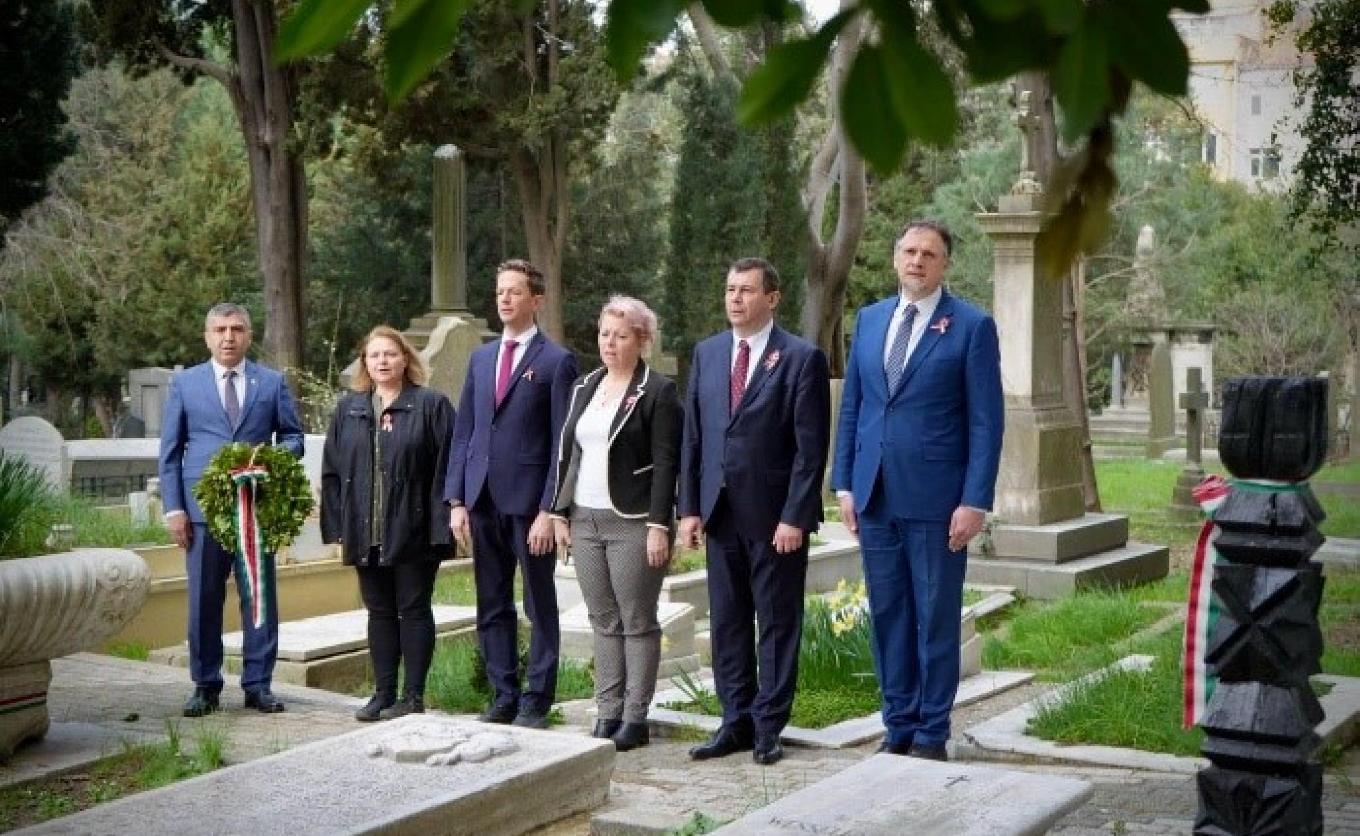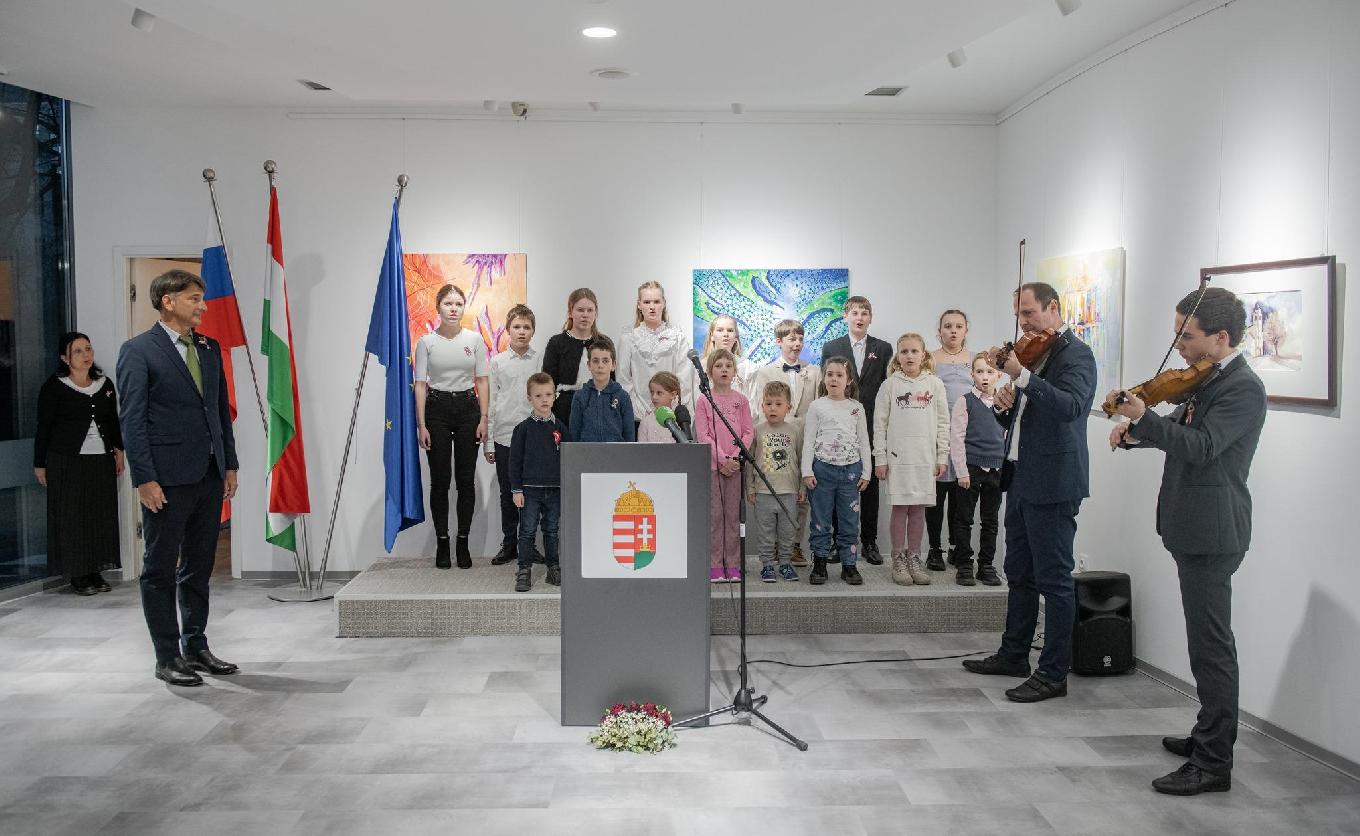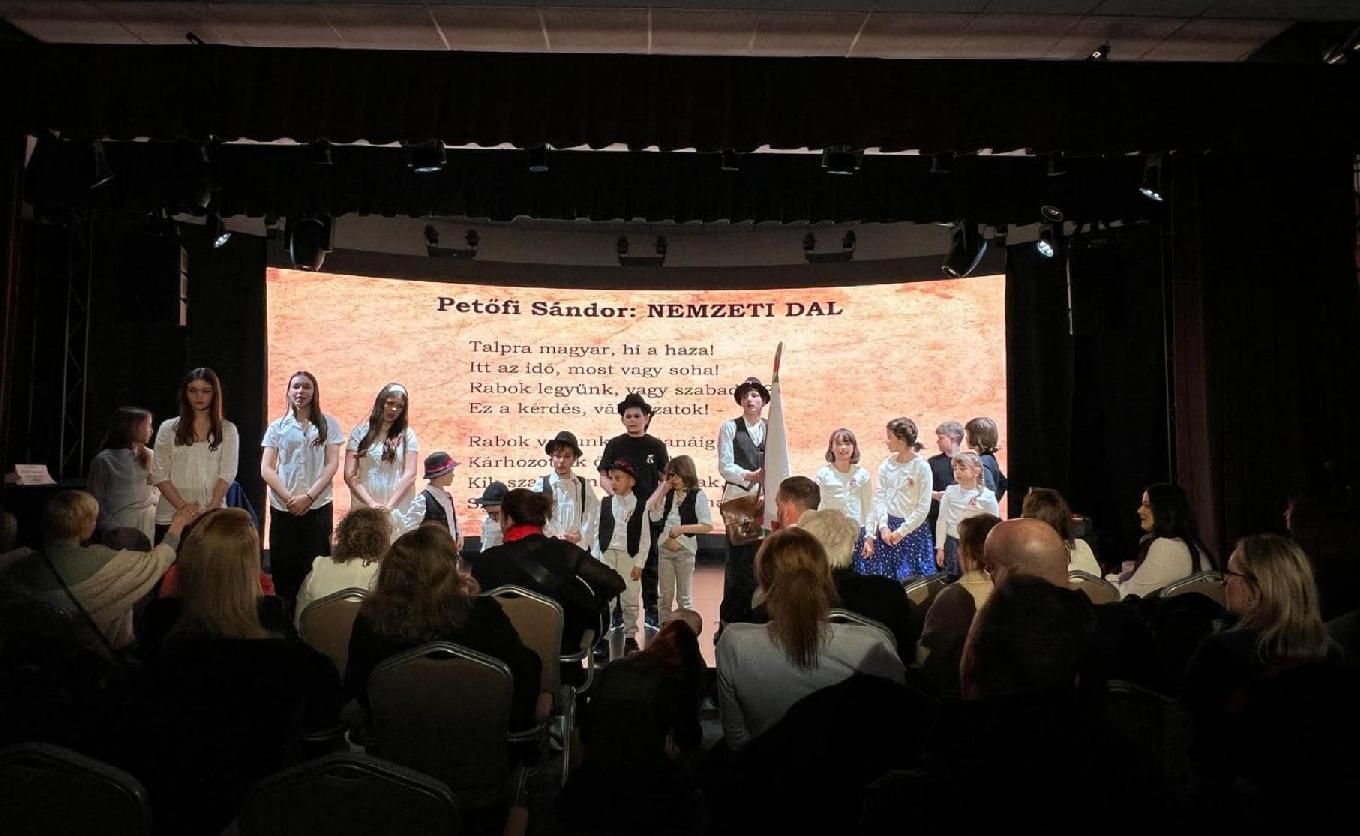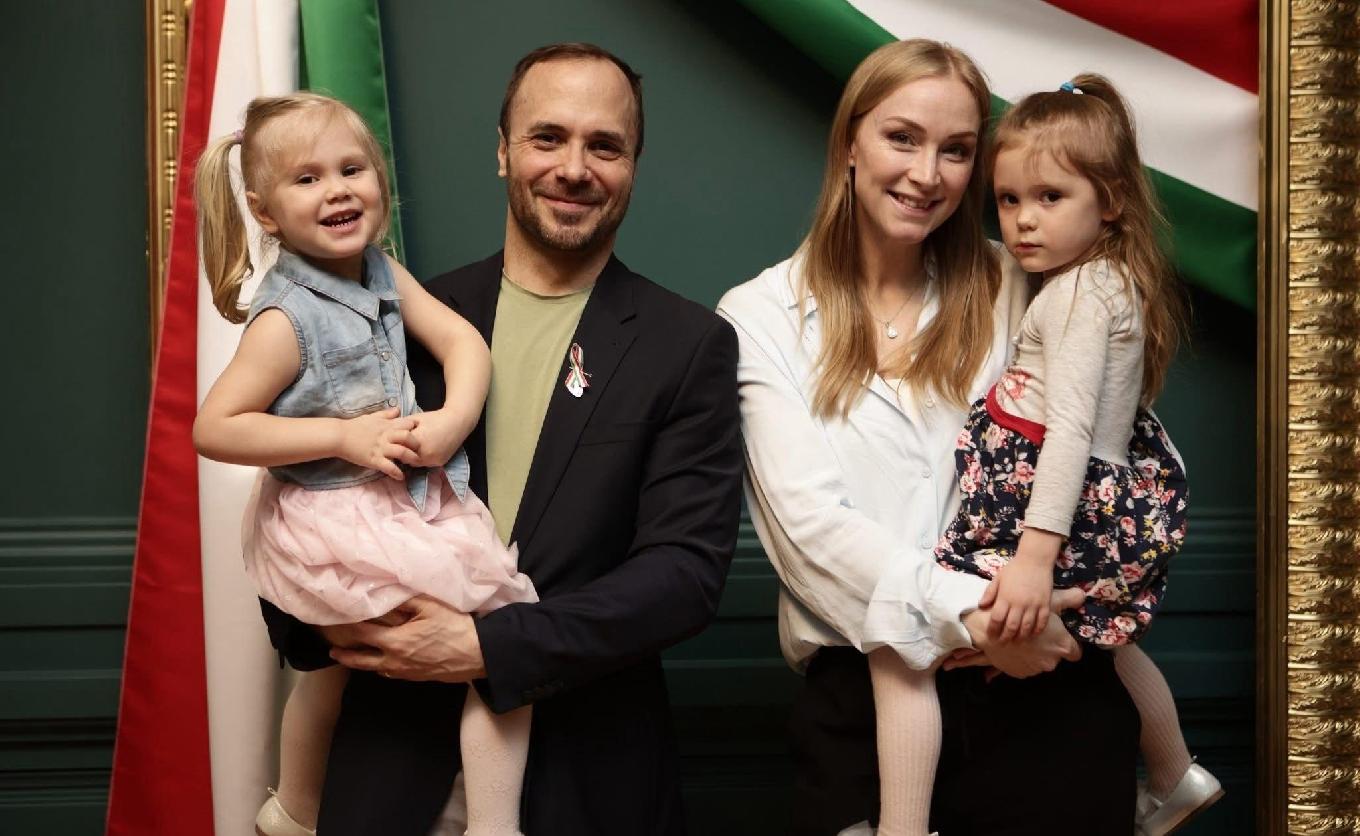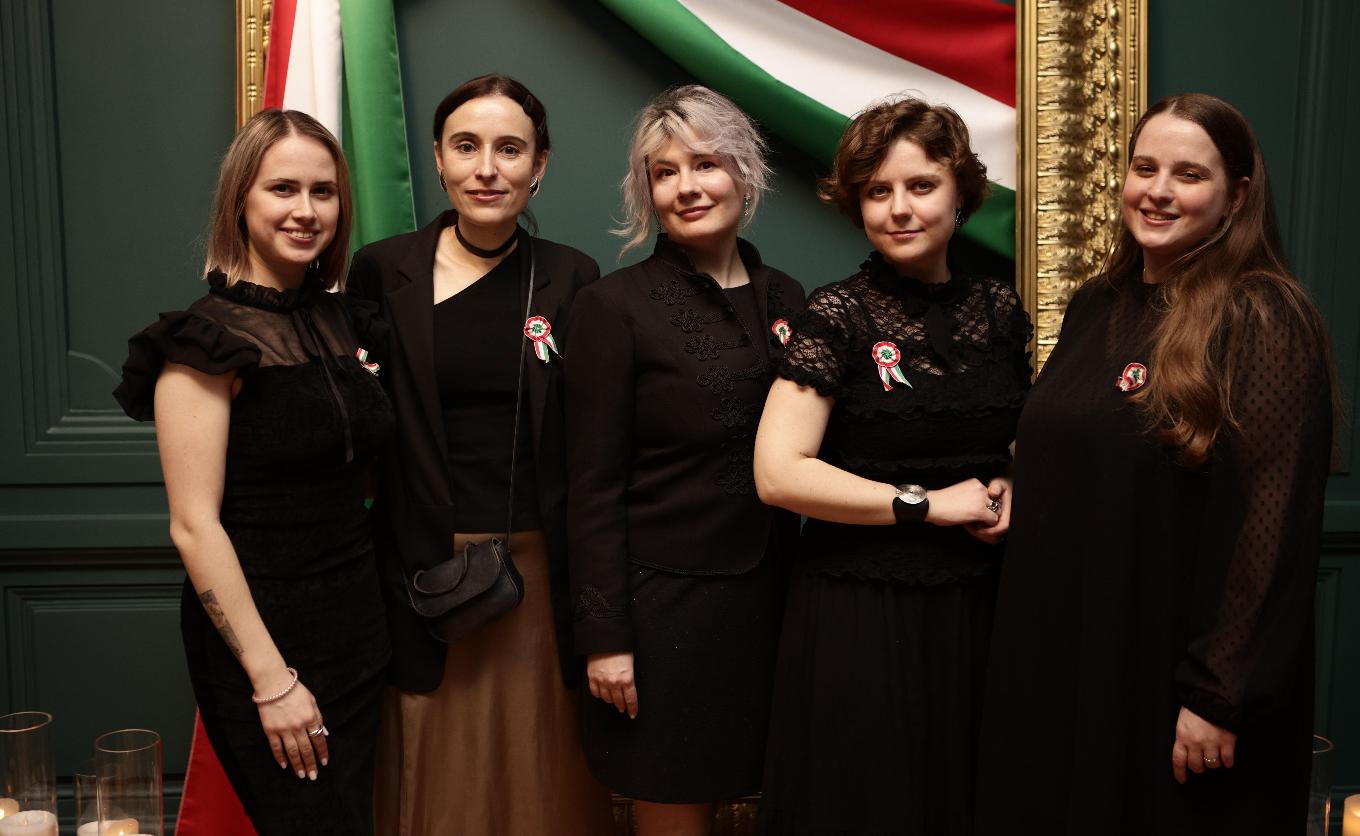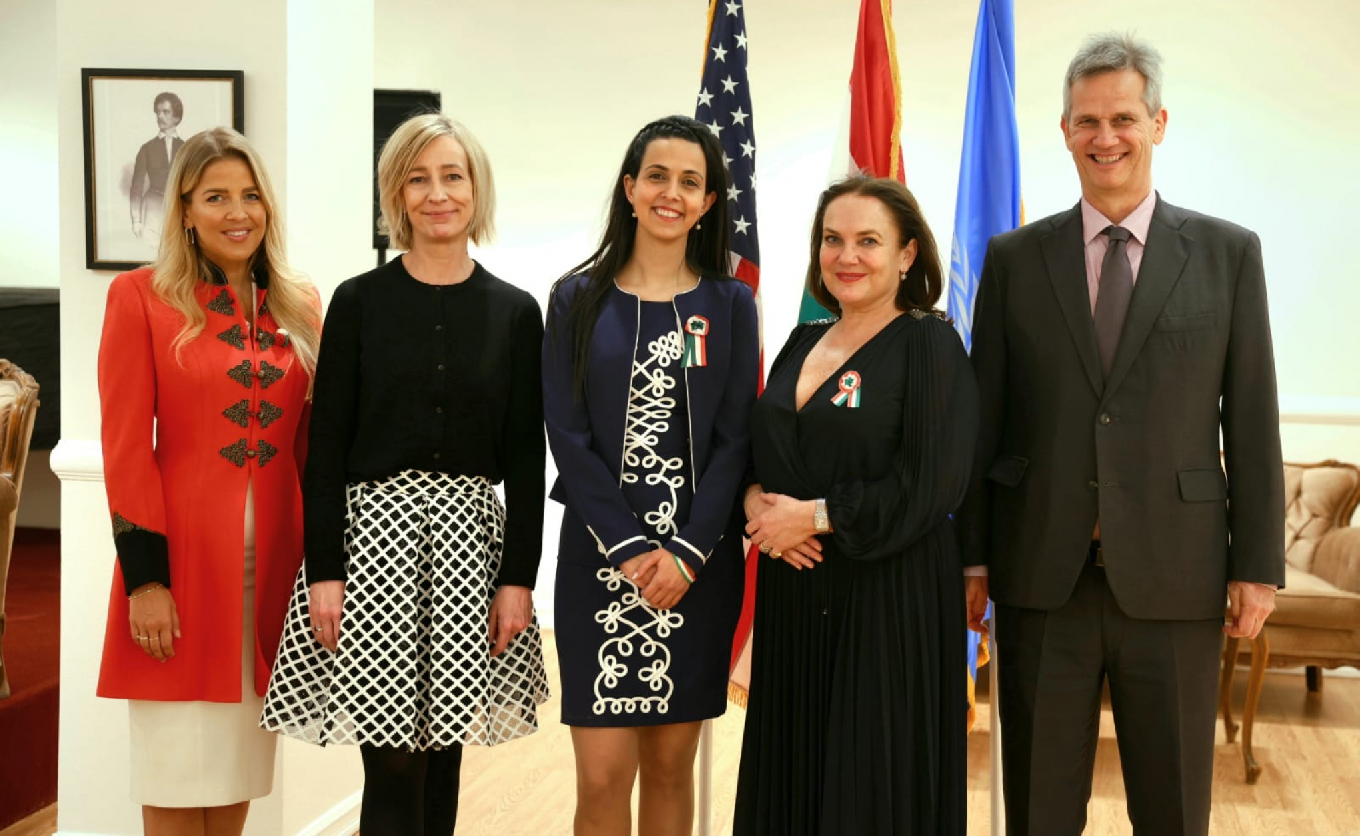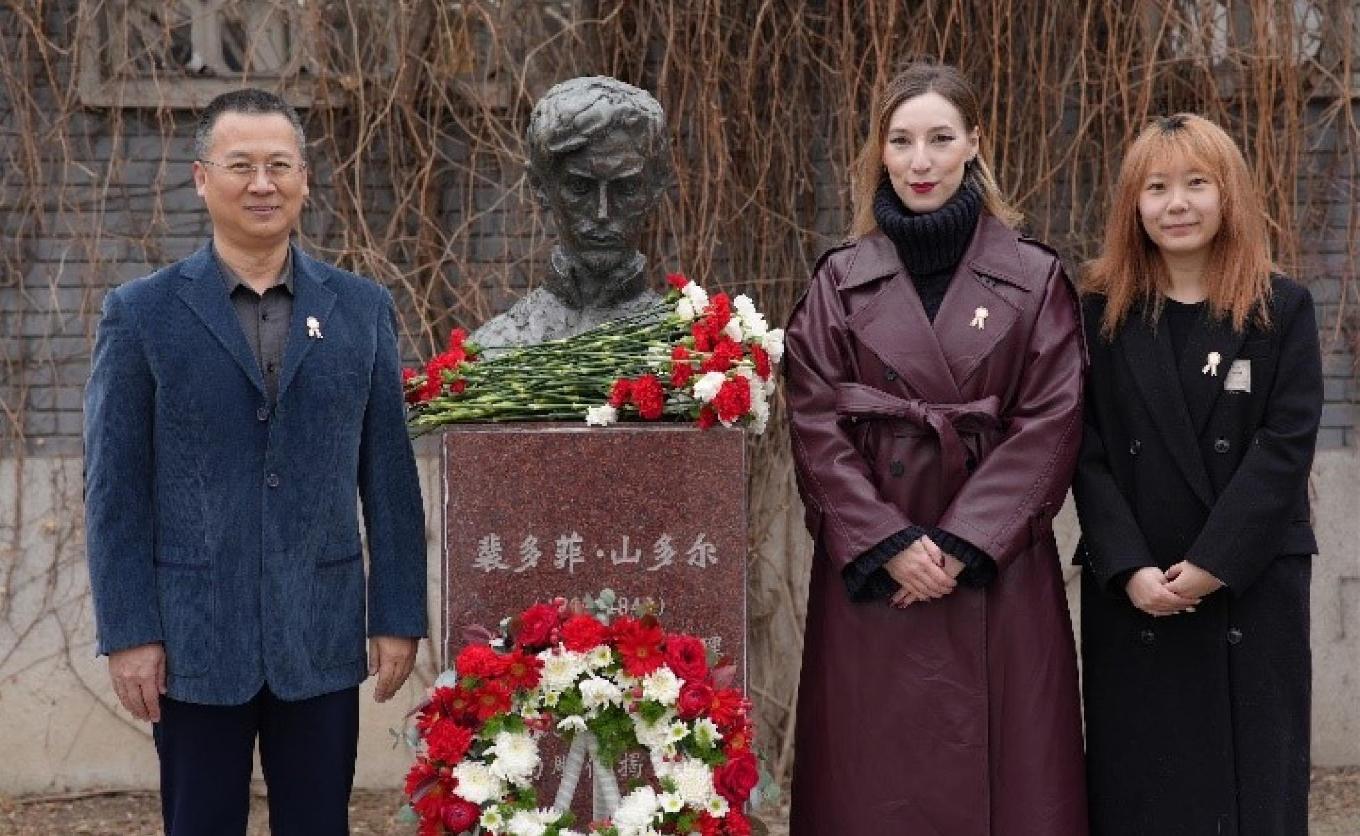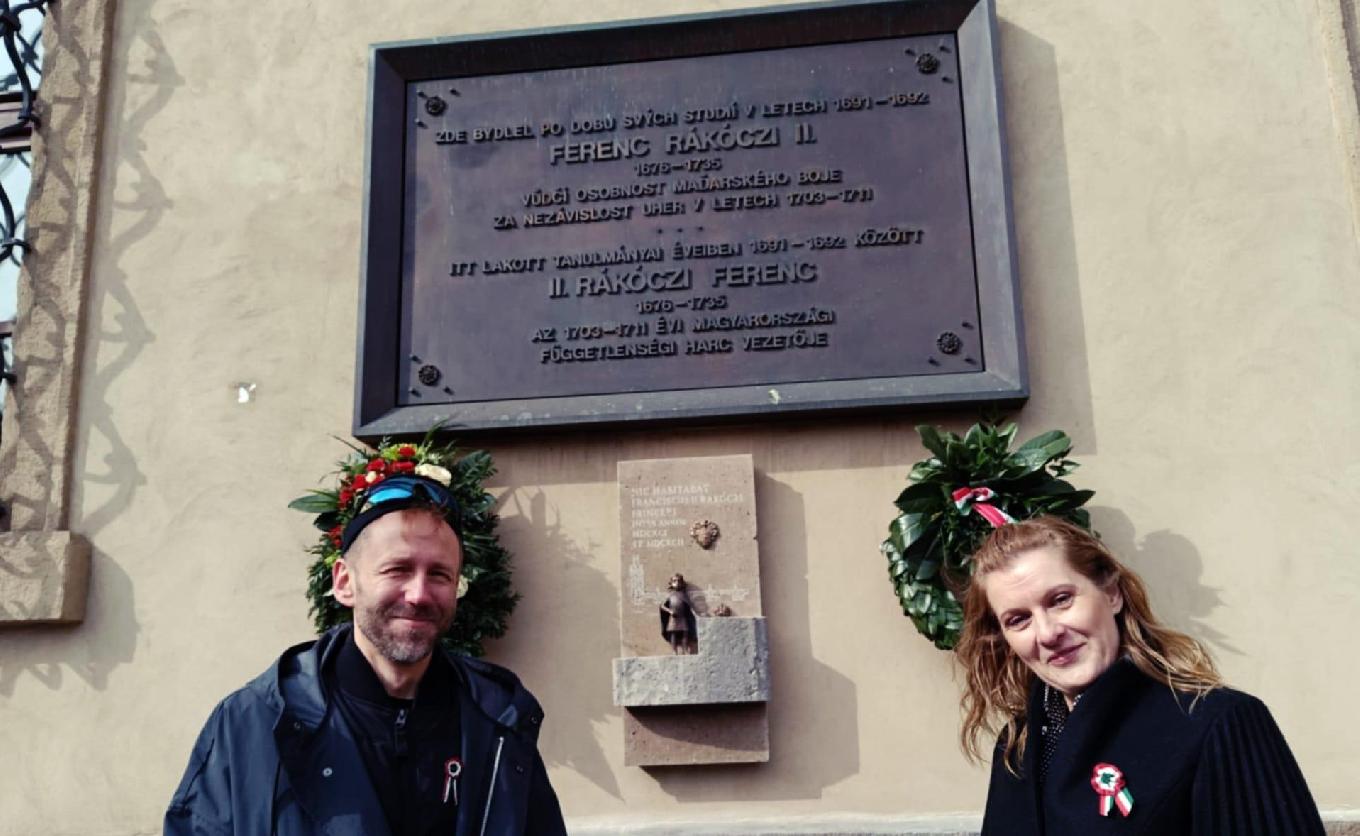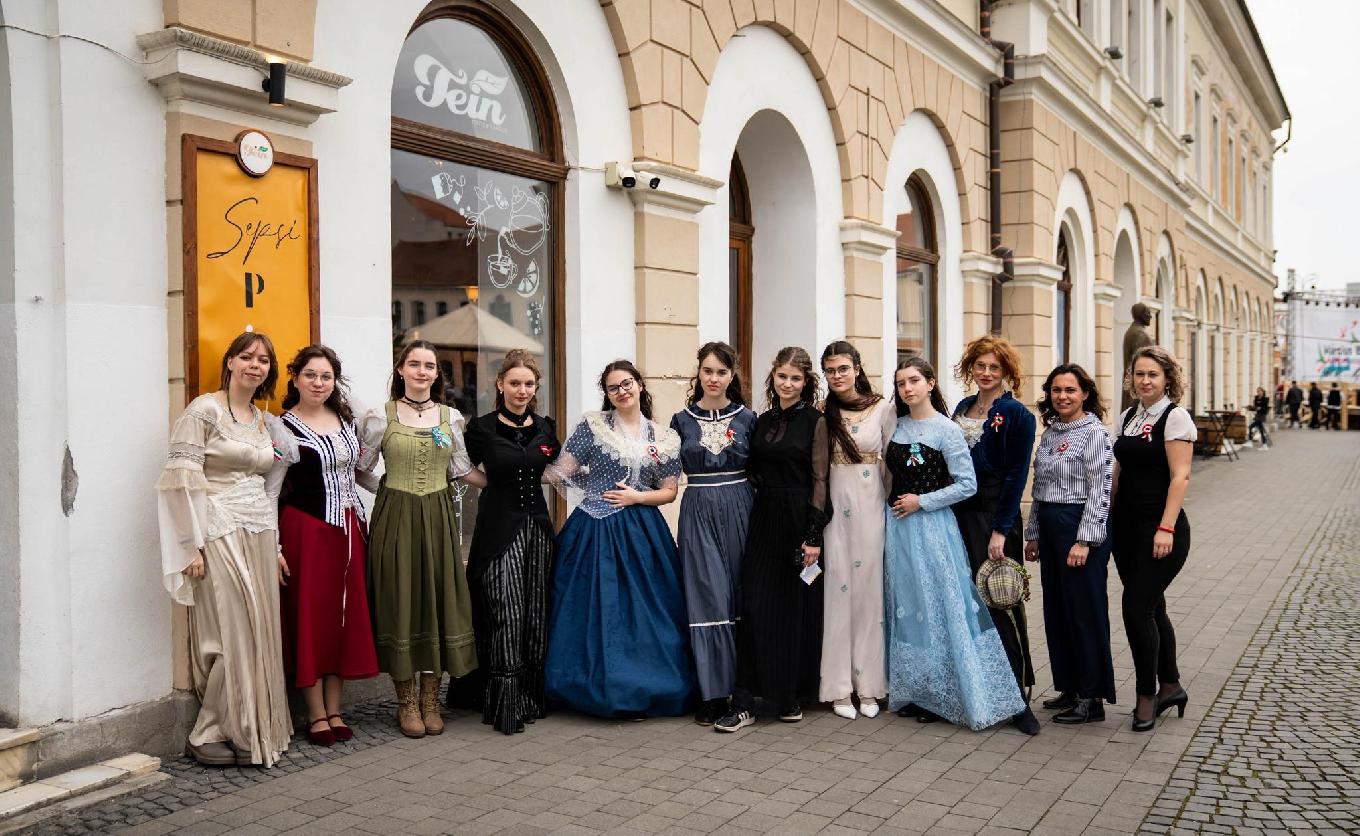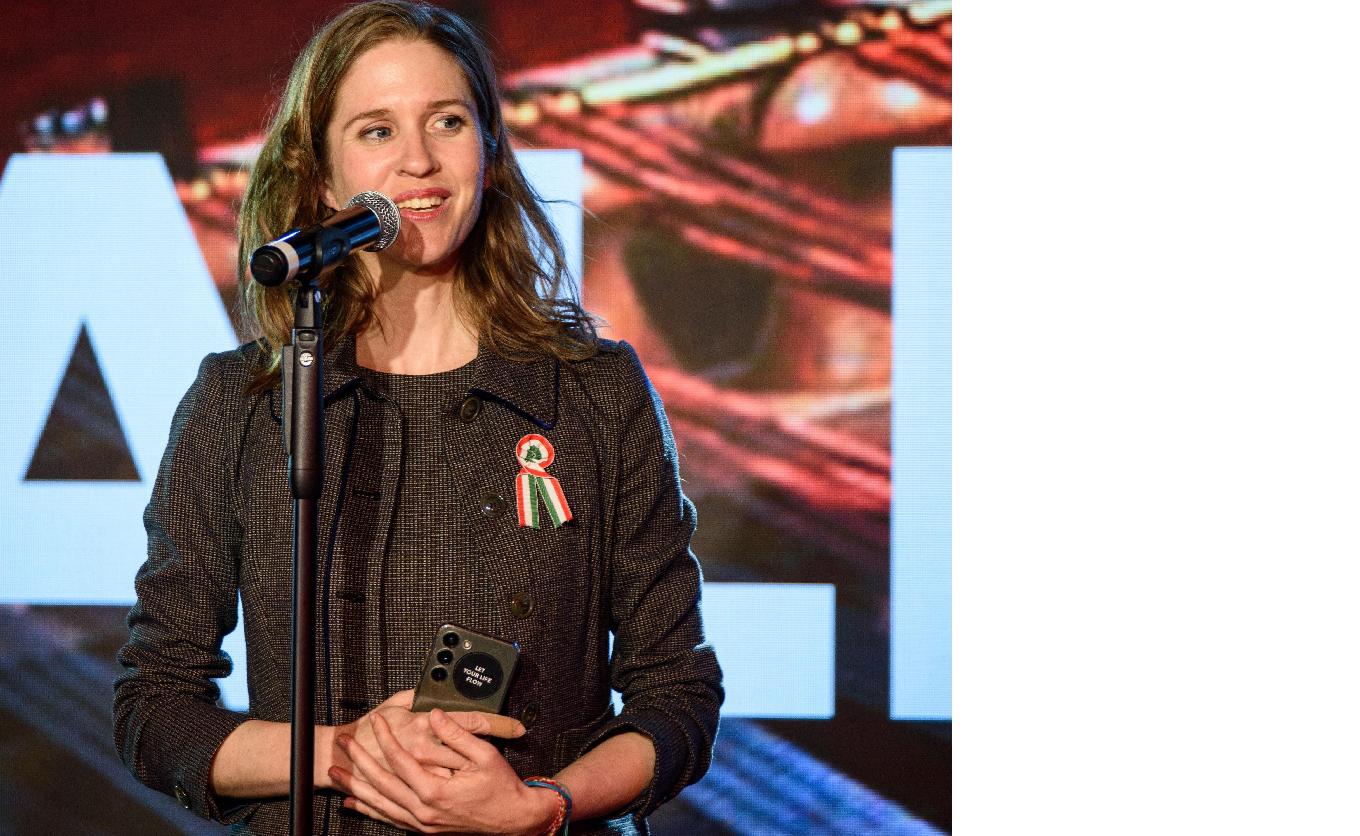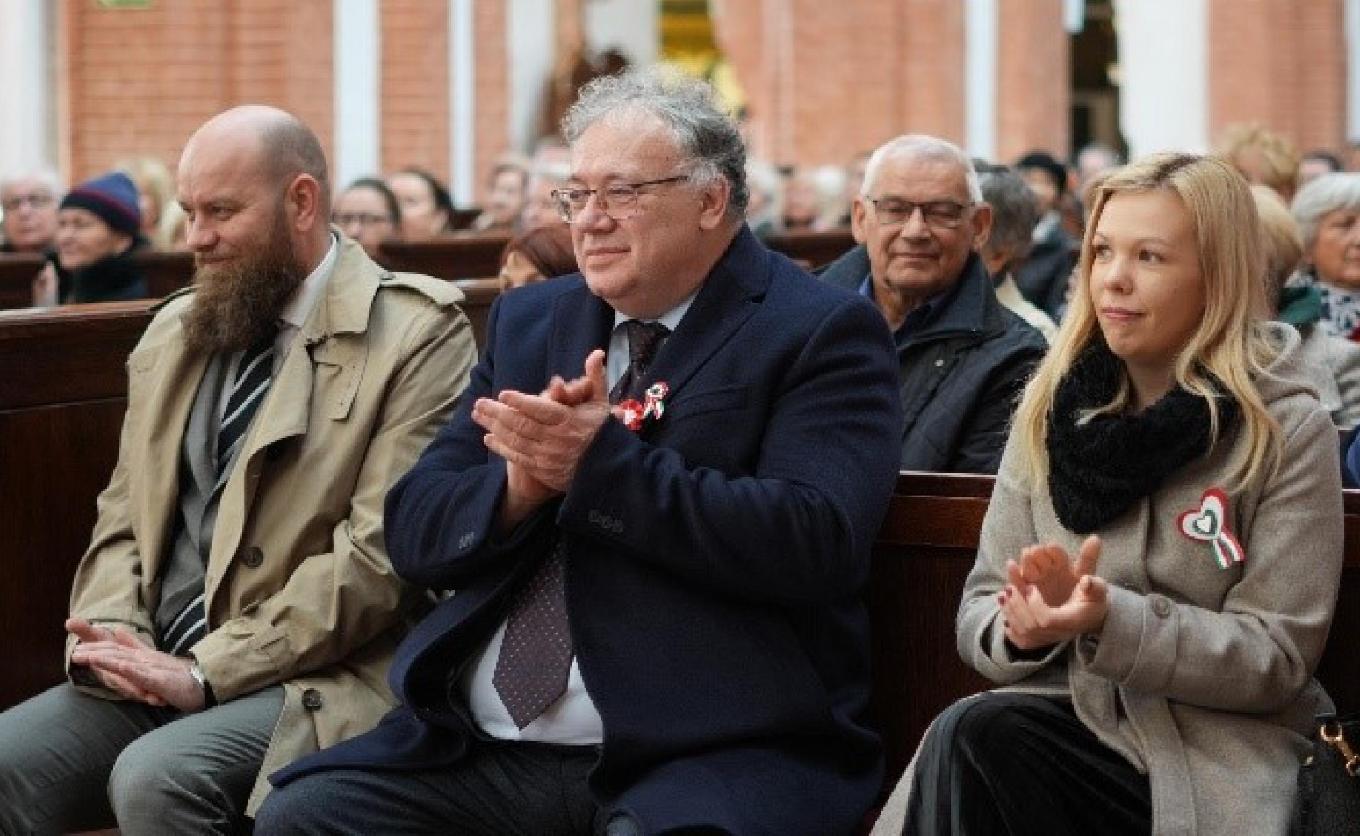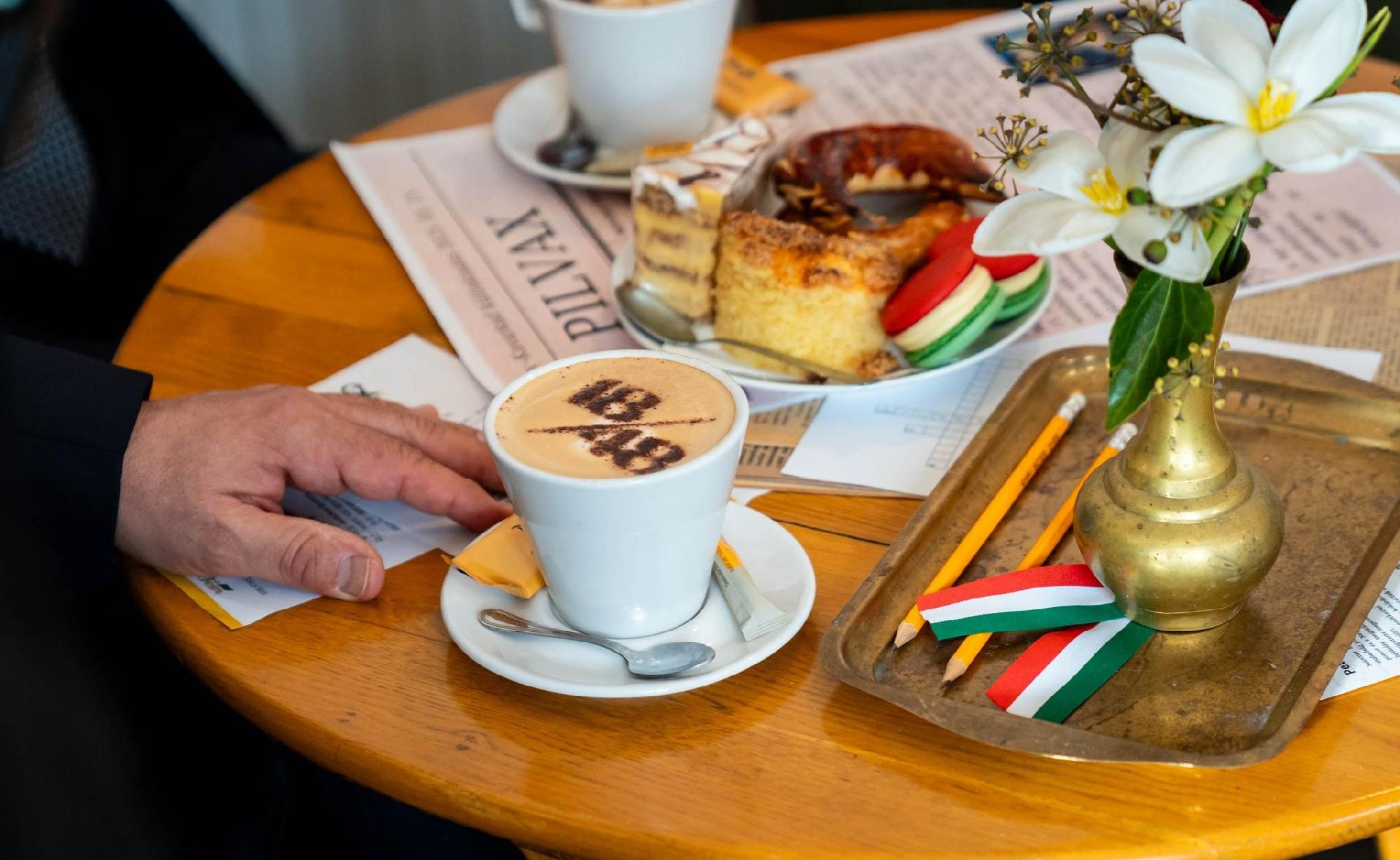
Worldwide Memorials to Our Heroes on March 15 at the Liszt Institutes
The 26 Hungarian cultural institutes in 24 countries around the world paid tribute to the 177th anniversary of the 1848/49 revolution and war of independence with a wide range of events. The Liszt Institutes and Collegium Hungaricums commemorated our heroes on March 15 with festive receptions, wreath-laying ceremonies, film screenings, concerts, a Pilvax café, a diverse Hungarian Day, a dance-theatre performance, and a theatrical play. In this article, we highlight some of the festive programs of the Hungarian cultural institutes.
The Hungarian Embassy and the Liszt Institute Moscow organised a festive reception. Guests were greeted with large cockades, photo walls evoking the past, historical portraits, candles, and decorations in the colours of the Hungarian national flag. During the commemoration, Ambassador Norbert Konkoly welcomed the attendees, then violinist Sándor Murzsa “Gróf” and pianist Natalja Gusz performed works by Béla Bartók and Johannes Brahms. The guests were also gifted with a memory game, "Hunagaricum Memo 1848-1849," developed by the Institute, along with traditional Hungarian food and drinks.
The Liszt Institute Brussels commemorated by laying wreaths at the memorial plaque of Baron Jósika Miklós and the grave of the mother of Kossuth Lajos, Kossuth Lászlóné (maiden name: Weber Karolina), in the Belgian capital. The event featured a speech by Ambassador dr. Tamás Iván Kovács, a prayer by Piarist Father István Havas, and Kossuth songs performed on the tárogató by Tamás Zsári. The Ljubljana Hungarian Embassy and the Liszt Institute Ljubljana laid a wreath at the memorial plaque of Count Lajos Batthyány at Ljubljana Castle. The event included a festive programme performed by Hungarian school students and violinist László Babinski at the Institute. Additionally, at their Pilvax café all visitors enjoyed a hot coffee, Petőfi books, and an exhibition about Petőfi. The Liszt Institute New York and the New York Consulate General laid a wreath at the statue of Kossuth on Upper West Side, with participation from the Foreign Hungarian Scouts Association. The celebration continued with a cultural program and reception for the representatives of the local Hungarian diaspora, featuring Hungarian poetry recited by students from the Arany János Hungarian School, and a performance by award-winning Sicilian pianist Sandro Russo, presenting some of the most virtuosic and beautiful works of Ferenc Liszt. The Liszt Institute Beijing organised its wreath-laying ceremony at the Petőfi statue in the garden of the Lu Xun Museum. The program began with the Hungarian anthem, followed by Hungarian and Chinese recitations of Petőfi Sándor's poems “One thought” ("Egy gondolat bánt engemet") and "About Freedom” (“A szabadságról") by students majoring in Hungarian from the Beijing Foreign Languages University, the Beijing International Studies University, and the Tianjin Foreign Languages University. Then Péter Király, the first secretary, and Anna Lujza Honecz, the institute director gave speeches. The ceremony included a wreath-laying ceremony then, the nearly 80 participants each paid homage with a flower to Sándor Petőfi and the memory of the 1848/49 revolution and war of independence. The Hungarian Embassy in Rome and the Collegium Hungaricum Rome (also known as the Hungarian Academy in Rome) organised a wreath-laying ceremony at the Türr István statue on Gianicolo Hill. The event featured a speech by Dr. Krisztina Lantos, the director of the institute. The commemoration continued with an evening reception at the Hungarian Academy in Rome, where Hungarian Ambassador Ádám Zoltán Kovács also delivered a speech. The Liszt Institute Sofia commemorated the 1848/49 revolution at four locations in Bulgaria. In Sumen, wreaths were placed at the Kossuth Lajos Memorial, the Kossuth Lajos Memorial House, and the Armenian Church, in the capital, at the Petőfi and Kossuth Memorial Plaques, in Vidin, at the Kossuth Memorial Plaque where Kossuth wrote his famous ”letters of Vidin”. In the town of Tsiprovci, Dr. Bernadett Kollár, First Officer, laid a wreath to the István Dunyov Memorial. Liszt Institute in Sofia organized a concert by Cimbaliband, which was also presented by the Liszt Institute Bucharest. The Liszt Institute Prague organised the placement of a miniature of Ferenc Rákóczi II., created by Kolodko Mihály, under the commemorative plaque at Malostranské náměstí which honours the stay of the young Rákóczi at the Jesuit College in 1691-1692. In Liszt Institute Zagreb and the Hungarian Minority Council of Zagreb commemorated by laying a wreath at the memorial plaque of Sándor Petőfi on Vlaška Street. The event featured a recitation of Petőfi's “National Song” ("Nemzeti dal") by the children of the Kéknefelejcs Kindergarten, with the Rády József Hussar Band providing a ceremonial guard. In the evening, a festive program featured Hungarian folk songs from the Transylvanian and Kalotaszeg regions related to the events of 1848, performed by Talentum Hungaricum scholarship holders Katalin Takács, folk singer and Anikó Barna, zither artist. The event's highlight was when all the attendees joined the performers in singing the Kossuth song. Additionally, the audience in Zagreb had the opportunity to see the performance of Fegyverneky Levente's play "The Hammer of the Village" ("A helység kalapácsa.") The Liszt Institute London, in collaboration with the Hungarian National Association in England, presented a play titled “Mattie the Goose Boy” "Ludas Matyi", performed by the weekend Hungarian school students.
The Collegium Hungaricum Vienna celebrated with an interactive children's program by the Lóca Ensemble, where participants explored the events of March 15, 1848. Adults enjoyed a performance by the Napraforgó Dance Ensemble, an evening of poetry and music with elements of dance theatre by the Svung, and a lecture by literary historian Dr. Márton Szilágyi. The event also featured speeches by Dr. Márton Méhes, the director of the institute, and Ambassador Edit Szilágyiné Bátorfi. The Collegium Hungaricum Belgrade hosted a concert by Cimbaliband as part of regional cooperation between Hungarian cultural institutes. Their concert, titled "1848 Március Idusán: Festive Concert with the Melodies of Freedom," featured romantic songs, hussar tunes, and laments from the era of the revolution. The Collegium Hungaricum Berlin, in collaboration with nine Berlin Hungarian communities and associations, organised a nearly 7-hour long Hungarian Day, featuring a Pilvax café, informative and entertaining stage programs, choir and dance performances, dance house for children and adults with live music, children's activities, and popular music concerts. The Hungarian Embassy and the Liszt Institute Bratislava hosted a festive concert at the Egressy Béni City Cultural Centre in Révkomárom. The concert featured the Beliczay Chamber Orchestra with 17 guest musicians. Gábor Csaba, the Deputy State Secretary of the Ministry of Culture and Innovation, gave the opening speech. The institute also held a memorial at the Petőfi statue in the Medikus Garden in Bratislava, in collaboration with the Csemadok Bratislava Committee and the Embassy. The Liszt Institute Tallinn, organised their national holiday reception together with the Embassy, featuring Magyarberce, Szék, Moldavian Csángó and Danube-region folk melodies performed by Karoliina Kreintaal and Katariin Raska.
The Liszt Institute Sepsiszentgyörgy welcomed visitors to the main square of Sepsiszentgyörgy with a revolutionary atmosphere again this year as it transformed the Tein Teahouse into a SepsiPilvax café for the occasion where the idea of freedom, the flavours of the reform era and historical memory met. Young people dressed in period costumes served period drinks (Kossuth's Regiment, Róza konytyalávalója), coffee (Laborfalvi Kapucin, Creamy Mocha Coffee - Jókai's favourite, Pilvax Long), food and pastry specialities (Kossuth cactus salad, Baradlay burger, Eszterházy cake, Kossuth buns, Bratislava buns, Kokárda macarons), furthermore, old newspaper articles, postcards, stickers and Jókai riddles waited those interested. The event also featured the opening of the exhibition "Jókai in Háromszék," which can be viewed until March 23 at the café.
The Liszt Institute Stuttgart commemorated with the dance performance “Splinters” ("Szálkák") by János Feledi, followed by a reception on March 17, organised jointly with the Hungarian Consulate in Stuttgart. The event also featured the performance of the Bokros Ensemble and a film screening of Lóth Balázs's “Now or never” ("Most vagy soha") on March 20. The Liszt Institute Paris also screened the film in Grenoble.
On March 15, the Polish Hungarian Association in Warsaw organised a crochet workshop for making cockades, followed by a themed workshop at the Divéky Adorján Weekend Hungarian School and Kindergarten at the Liszt Institute Warsaw. The school’s volunteer teachers introduced the children to the traditions of the national holiday in six different age groups, followed by Hungarian folk dance instruction from Klára Szász, institute director. The workshop included a craft session where participants made a Pilvax café diorama, led by Zsolt Sarkadi and Éva Radziwon. In collaboration with the Liszt Institute, the M. Woroniecki Hungarian-Polish Friendship Association also organised a commemoration in Bolesławiec, featuring a mass and a concert with the participation of Ambassador István Íjgyártó and Institute Director Gáspár Keresztes. The full-house event concluded with a festive lunch.


